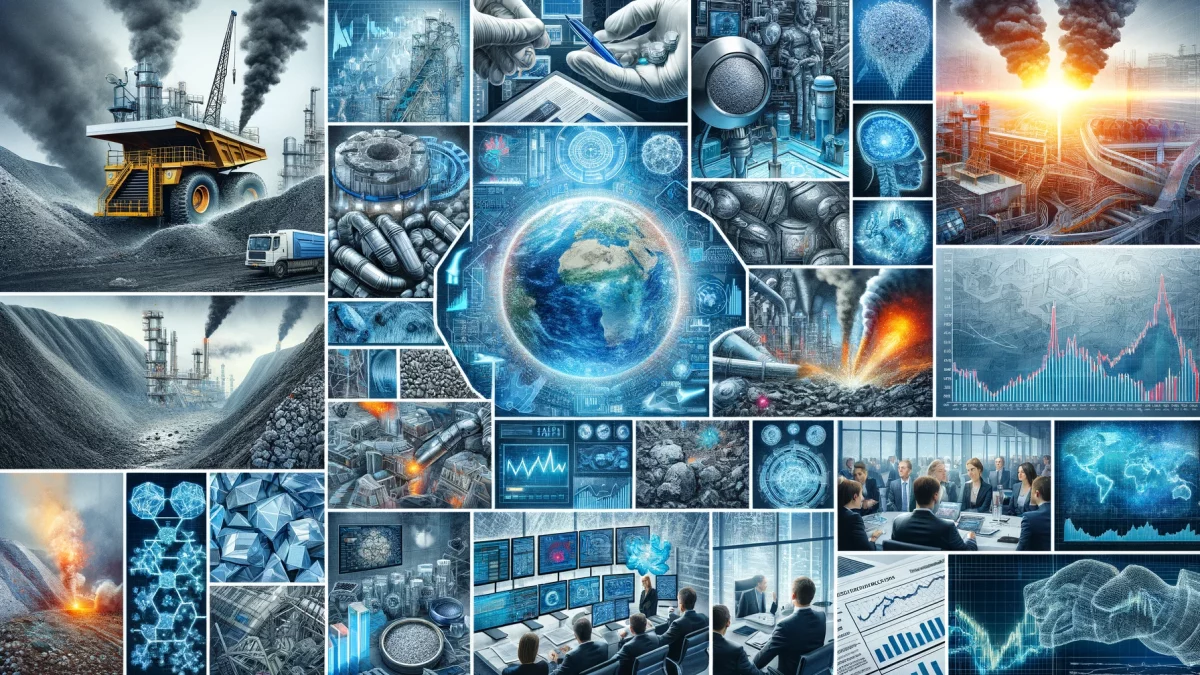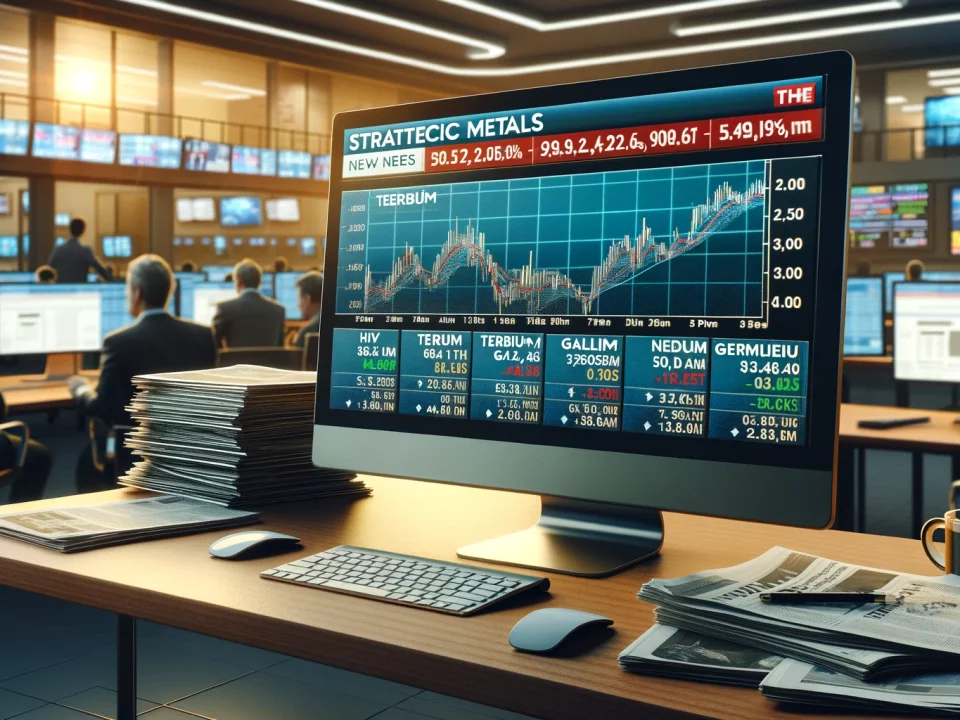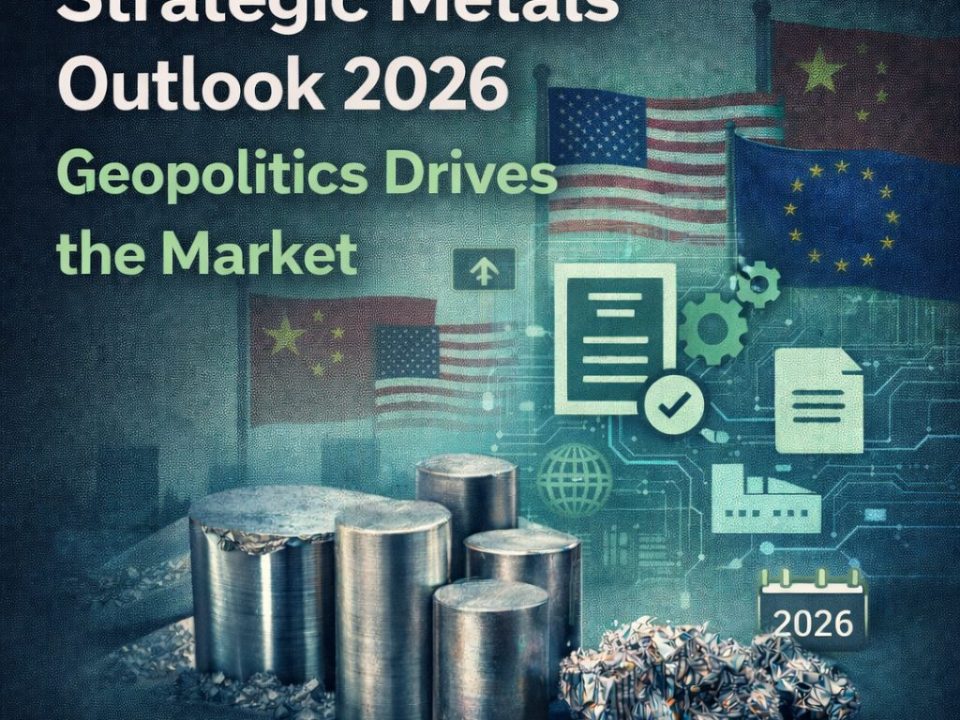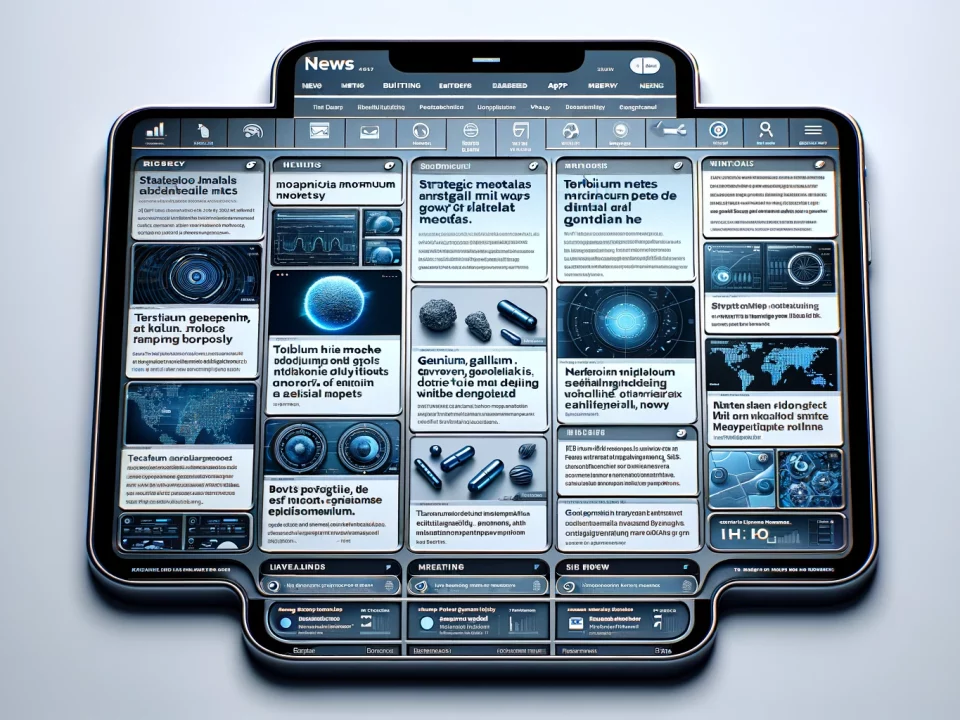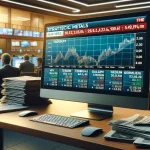
Weekly News Review June 17 – June 23 2024
June 23, 2024
Weekly News Review July 1 – July 7 2024
July 7, 2024Welcome to our weekly news review.
UNITED STATES, JAPAN AND SOUTH KOREA JOIN FORCES TO COUNTERBALANCE CHINA:
Cooperation in batteries, semiconductors, and rare earths to be strengthened.
The United States, Japan, and South Korea want to work more closely together to build resilient supply chains and develop critical technologies. This results from a meeting between the trade and industry ministers of the three countries in Washington. According to a joint statement, the cooperation will focus on sectors such as batteries, semiconductors, clean energy, artificial intelligence, and the critical minerals needed for these technologies.
The background is the implementation of the Indo-Pacific Economic Framework for Prosperity (IPEF), a trade and economic initiative launched by the U.S. last year (we reported) to work with Indo-Pacific countries to counterbalance China’s influence in the region.
The People’s Republic has become a key electronics producer in recent decades. It dominates the supply chains for numerous raw materials such as rare earths, lithium, and gallium. Due to increasing geopolitical tensions, the U.S. wants to reduce its dependence on imports.
The country is investing in the domestic minerals sector, and measures aimed directly at China, such as export controls on chips, have also been introduced. Economic security has also been on the political agenda in Japan for quite some time.
South Korea wants to broaden its supply chains but is considering closer cooperation with the People’s Republic. Like Japan, the country is a major high-tech producer but only has a few of the raw materials it needs.
Gallium and Germanium: Criticism Regarding China’s Export Controls –
Critical minerals and supply chains are featured comparatively prominently in the published declaration. The three countries seek improved processing and refining capacities, especially for rare earths and the permanent magnets made from them, to facilitate the transition to clean energy.
Governments and the private sector should become more active in this area. Without mentioning China by name, the export restrictions imposed by the People’s Republic last year on gallium, germanium, and graphite were criticized as they could lead to “unreasonable and significant supply chain disruptions.” The countries reserve the right to “take appropriate actions where necessary.”
Last week, the U.S. concluded a similar agreement with India as an emerging economic power in the Indo-Pacific (we reported). Japan and Korea, for their part, are expanding cooperation with countries such as Australia and Vietnam, which want to establish themselves as alternative suppliers of raw materials to China.
NORWAY TAKES THE NEXT STEPS TOWARDS DEEP SEA MINING :
The Scandinavian country aims to award its first exploration permits in 2025.
The Norwegian Government is forging ahead with its plans to mine minerals on its continental shelf. On Wednesday, the Ministry of Energy published a proposal for the first licensing round to award initial exploration permits in the first half of 2025. The proposal outlines designated areas for which companies may apply.
In June 2023, the Scandinavian country announced its first intention to extract minerals from the ocean floor. Then, in January of this year, the Norwegian Parliament voted to open up an area in the North Atlantic between the Svalbard archipelago and Jan Mayen island for deep-sea mining exploration (we reported). The Wednesday published proposal comprises approximately 38 percent of the area opened in January, split into 386 blocks.
Norway is set to become the first country to mine its continental shelf. The topic is controversial because little data exists on the environmental impacts of deep-sea mining. Hence, countries such as the U.K. and Germany have called for a moratorium on issuing deep-sea mining permits in the past, arguing that more studies must be conducted first.
Referencing the environmental concerns, Norwegian Minister of Energy Terje Aasland highlighted in the proposal that Norway seeks “to explore if it is possible to extract seabed minerals sustainably.” The proposal also clarifies that awarding exploration licenses is not an exploitation permit, and companies must conduct impact assessments proving that a project can mine minerals sustainably and responsibly. Aasland, however, highlighted that “the world needs minerals for the green transition.”
On the other side of the globe, Japan also discovered substantial amounts of resources on its continental shelf in a recent study. A professor from the University of Tokyo leading the study there calls for swift action to mine them, arguing that “it is essential to give birth to a new ocean industry in the context of creating innovations.” The Asian country aims to mine minerals in the deep sea by the decade’s end.
WILL AUSTRALIA’S LYNAS CORP RIVAL CHINA IN HEAVY RARE EARTHS?:
The Australian mining company plans to offer separate dysprosium and terbium in 2025. Production of heavy rare earths has been highly concentrated geographically.
Australian rare earth specialist Lynas will expand its product portfolio to include dysprosium and terbium starting in 2025. Both representatives of the heavy rare earths are used, among other things, to increase the performance of permanent magnets such as those in wind turbines.
Until now, the heavy rare earths extracted from Lynas-operated Mount Weld mine in Australia have only been sold as a compound. The company added that the separation of dysprosium and terbium will occur in Malaysia’s processing plant.
China dominates the production of heavy rare earths, which are significantly rarer and, therefore, more expensive than their “light” counterparts, such as neodymium. Production is highly concentrated and mainly limited to southern China and neighboring Myanmar regions.
The German Mineral Resources Agency DERA classified the supply situation as critical in 2011.
SOUTH KOREA TO ASSUME ONE YEAR LEAD OF THE MINERALS SECURITY PARTNERSHIP (MSP):
The MSP is a transnational association aimed at bolstering supply chains of critical minerals.
South Korea is set to lead the Minerals Security Partnership (MSP) starting Monday after receiving unanimous support from the member states. The MSP is a U.S.-initiated, multilateral association launched in 2022 to strengthen supply chains of critical minerals, comprising 14 states and the European Union as members. The initiative seeks to connect industry nations with resource-rich nations.
The United States, the current head of MSP, welcomed South Korea’s initiative in taking over as the MSP chair, praising the Asian country’s efforts and leadership in critical minerals. South Korea will hold the lead for one year.
Under the MSP, the U.S. and South Korea have initiated multiple projects, including exploring rare earth projects in Vietnam, a country with considerable, mostly untapped rare earth resources.
Besides working under the MSP, the U.S. and South Korea seek closer cooperation on other supply chains and export controls. According to Yonhap News Agency, South Korean Industry Minister Ahn Duk-Geun and his U.S. counterpart, Gina Raimondo, met in Washington this week during the Supply Chain Commercial Dialogue (SCCD) to discuss continuing collaboration, among other things.
More on South Korea’s quest for critical minerals:
The Asian country is home to a resource-hungry high-tech industry but lacks its deposits of critical minerals. Thus, it depends heavily on imports, especially from China. In recent months, the Asian country has ramped up efforts to diversify its supply chains. Last month, the first Africa-Korea Summit was held in Seoul. Following the summit, President Yoon Suk Yeol inaugurated the K-Silk Road initiative during travel to Central Asia.
RARE EARTHS: LATIN AMERICAS FIRST MAGNET MANUFACTURER PARTNERS WITH METEORIC RESOURCES –
The two parties will explore fields of collaboration, including possible off-take agreements from Meteoric’s Caldeira rare earth project in Brazil.
Australia-based mining company Meteoric Resources has signed a Memorandum of Understanding (MoU) with the SENAI Regional Department of the southeastern Brazilian state of Minas Gerais – the operator of Latin America’s first permanent magnet manufacturing facility, Lab Fab (PDF). SENAI stands for Serviço Nacional de Aprendizagem Industrial, which roughly translates to National Service for Industrial Training. The organization provides training for specialized workers in mining or chemical engineering fields.
Under the five-year MoU, the two parties will explore using feedstock from Meteoric’s Caldeira rare earth project at Lab Fab and further collaboration in research and experiments, among other fields.
Lab Fab will begin operations later this year and is expected to produce 100 tons of permanent magnets annually in its initial phase, with plans to double this within three years.
Meteoric Looking for Off-Takers for its Caldeira Project –
Andrew Tunks, Executive Chairman of Meteoric, commented on the MoU, saying it “is an important partnership for Meteoric as we look to potential offtakers for our Caldeira Project, which targets first production in 2027.”
Meteoric’s Caldeira project is also located in Minas Gerais, facilitating the transport of raw materials to Lab Fab. Off-takers include Canadian rare earth and magnet specialist Neo Performance Materials, which signed a supply agreement with Meteoric earlier this year (we reported). For further processing, Brazilian feedstock will be shipped to Neo’s separation plant in Sillamäe, Estonia.
In the future, this facility will supply the company’s sintered rare earth permanent magnet manufacturing plant, which is currently under development in nearby Narva, Estonia.
CANADIAN IRIDIUM RECYCLING COMPANY ACQUIRED BY HERAEUS:
The precious metal is used in electrochemical processes, including hydrogen production.
German technology group Heraeus has purchased 100% of McCol Metals, a Canadian company that recycles precious metals, mainly iridium. The facility in St. John’s, in the Western province of Newfoundland and Labrador, will continue production but will be operated by Heraeus Precious Metals, the group’s precious metals division.
The move will further expand Heraeus’ precious metals recycling competency, according to Marius Vigener, Executive Vice President of the division. McCol Metals recovers precious metals from spent mixed metal oxide electrodes, which are used as anodes in electrochemical processes, such as in producing copper foils for batteries.
Hydrogen Production – A Growing Field of Usage
Iridium is rarer than gold or platinum and is the most corrosion-resistant metal. South Africa is the leading miner of iridium and all other platinum group metals, followed by Russia. It is used in the electrical, electrochemical, and automotive sectors. In early 2021, iridium prices witnessed an all-time high amid growing demand and supply shortages, according to market intelligence company ChemAnalyst.
Since then, prices have remained at elevated levels. Because of its growing usage as an electrolyzer in hydrogen production, storage, and transportation, the German Mineral Resources Agency (DERA) identified potential supply risks for iridium and the rare earth element scandium 2020 study.
Most Recent Venture Into Raw Material Recycling:
The acquisition marks Heraeus’ most recent venture into recycling raw materials. The group recently commissioned Europe’s most extensive recycling plant for rare earth magnets under its Heraeus Remloy division. These magnets are used for wind turbines and electric vehicles, for example. The company said recycling spent magnets could cover more than 30 percent of Europe’s rare earth demand.
Consultations announced – tariffs would apply from July 4.
Provisional import tariffs on Chinese-made electric vehicles could apply in the European Union from July 4. The E.U. wants to defend itself against “world markets being flooded with cheaper Chinese electric cars,” as Commission President Ursula von der Leyen put it. To avert the levies after all, China’s Minister of Commerce Wang Wentao and Valdis Dombrovskis, Vice President of the European Commission, announced consultations over the weekend, as reported by the state-affiliated Global Times, among others.
The first talks could take place as early as today, Monday, writes German news outlet Handelsblatt, citing well-informed circles in Brussels. However, they are skeptical that China will fundamentally change its subsidy policy, which generously promotes the E.V. industry. For their part, Chinese car manufacturers have already urged a response to the punitive tariffs.
They are calling for temporary tariffs on large-displacement petrol vehicles imported from Europe, as the news portal Electrive reports.
According to figures from the German Federal Statistical Office, more than 40 percent of E.V.s imported to Germany between January and April came from China.



